Experimenting with ChatGPT 3.5:
Citation: OpenAI. (2023, Nov19th). [ChatGPT response to a prompt about creating a story about kids learning long division]. https://chat.openai.com/c/6018b986-30d0-4265-a27b-80fd6a2c78db
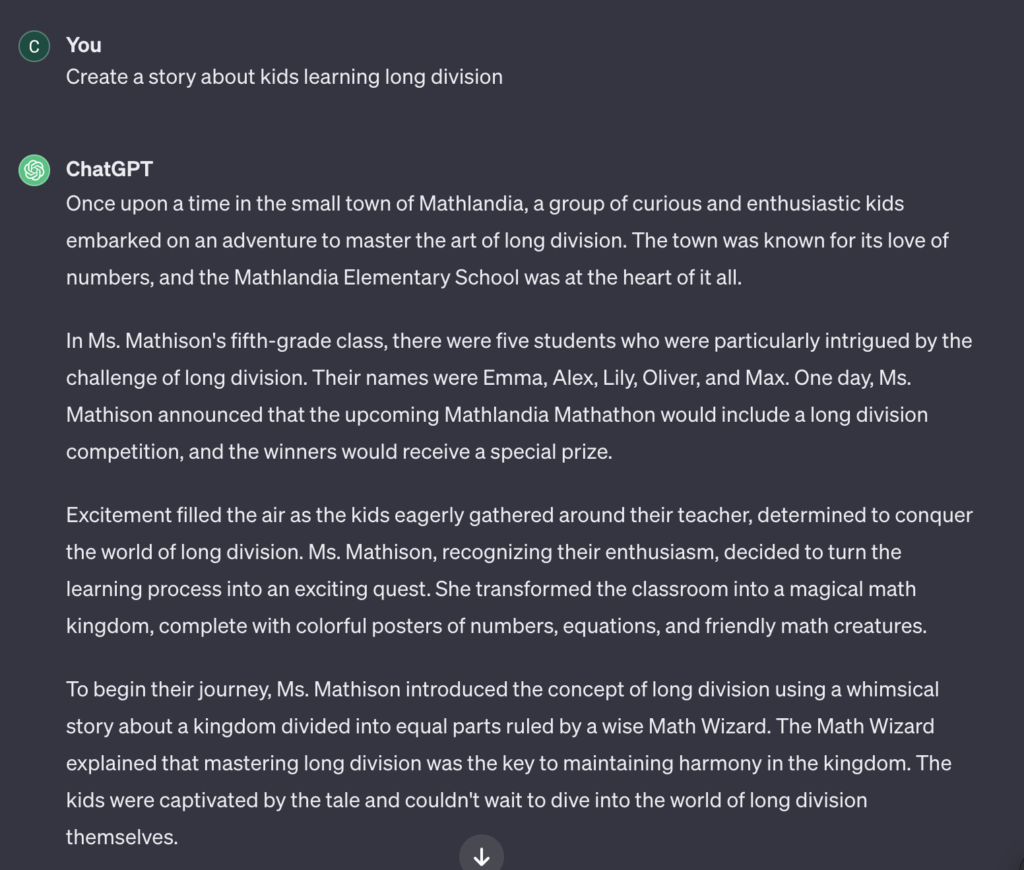
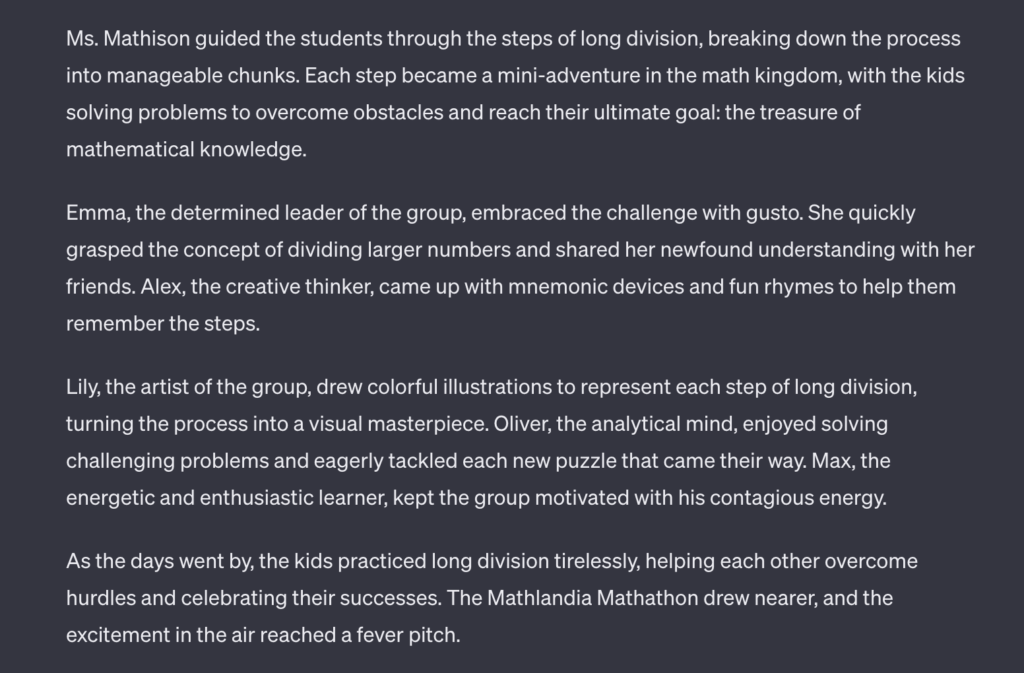
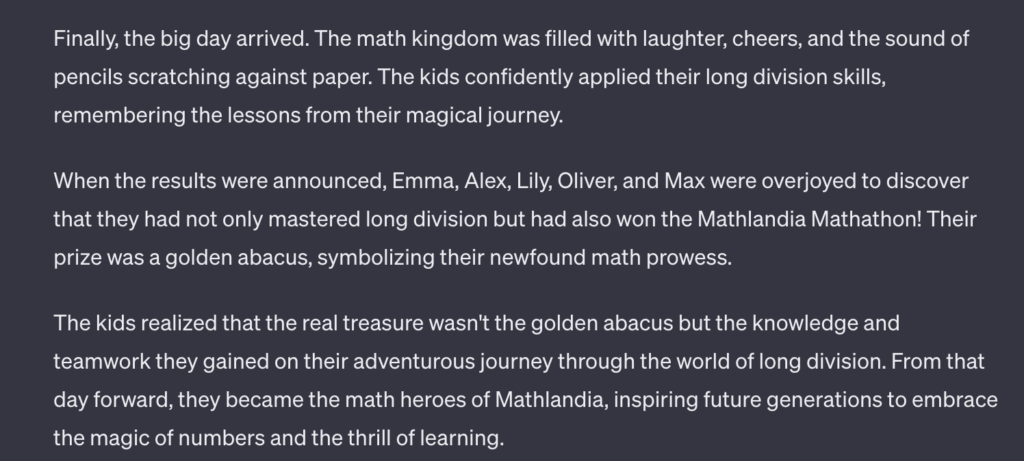
Experimenting with Perplexity:
Citation: OpenAI. (2023, Nov19th). [Perplexity responds to a prompt about 3 different techniques to do long division]. https://www.perplexity.ai/search/ece49c42-3965-469b-8d65-1a1daa0b29bd?s=u
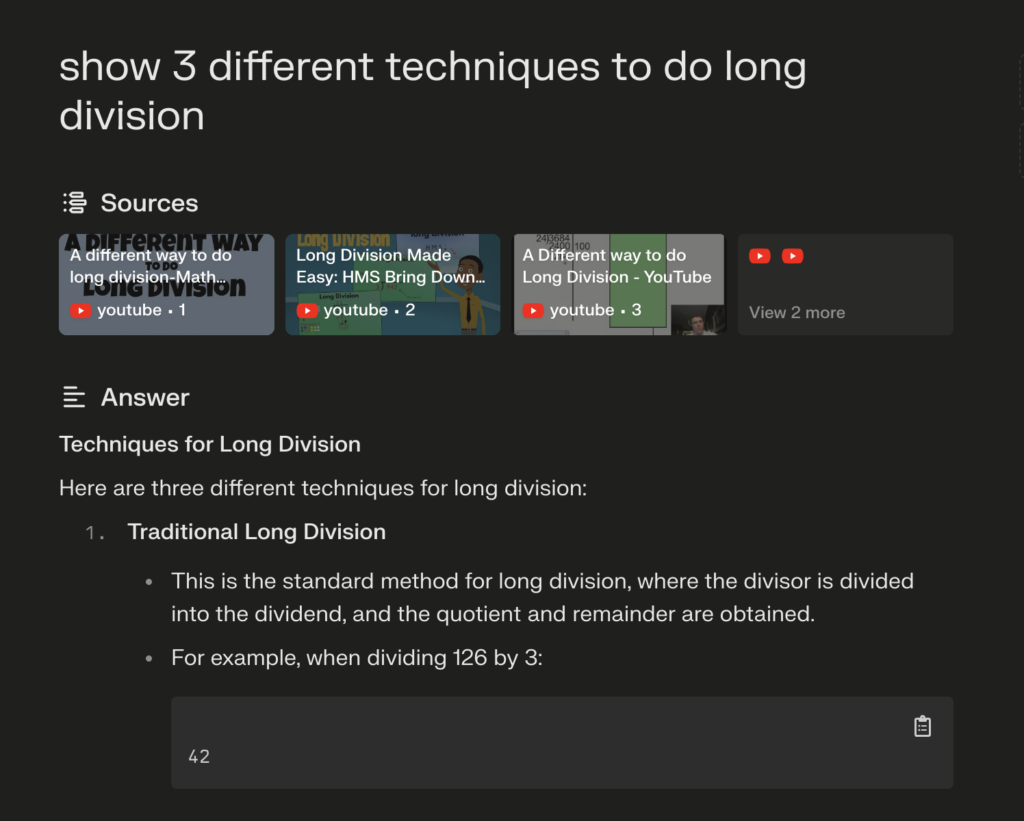
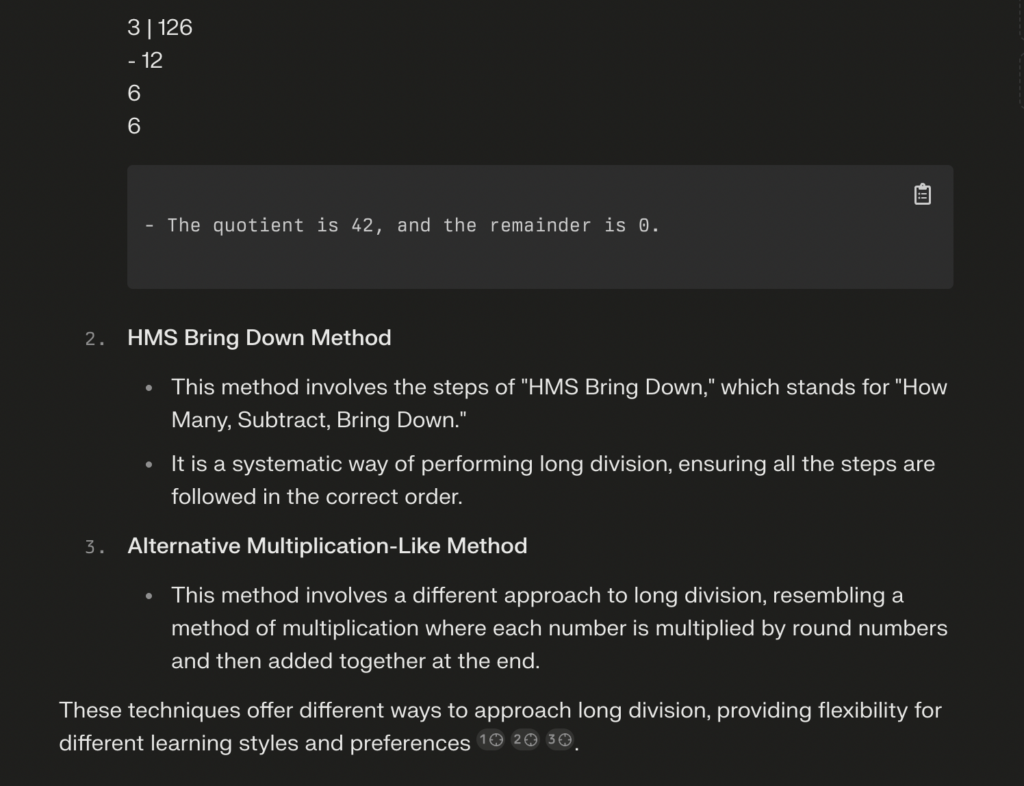
Reflection:
I decided to experiment with both ChatGPT and Perplexity having never used Open AI before. I asked ChatGPT to write a story about kids learning long division, then asked Perplexity 3 different techniques to doing long division. What amazed me right off the bat was how quick both of these platforms were to respond. It gave me an in-depth answer in a matter of seconds. Open AI truly unlocks so many possibilities and opportunities when it comes to learning. After using this tool for the first time, I can say I will definitely be using it more in the future to help me with other tasks.
What ethical concerns do you have (or not have) about the use of some of these tools?
The immediate ethical concern that comes to mind when talking about Generative Artificial Intelligence is the breaching of academic integrity. Universities are currently going through obstacles to try and find ways to screen for the unauthorized use of AI in assignments and tests. Many students are getting away with submitting assignments that were created entirely using a platform like ChatGPT. This
Another concern is the fact that Artificial Intelligence could very easily take over so many types of jobs. An example of this is generative AI creating any kind of art in a matter of seconds. Now that this technology is so advanced, is there any room for artists to still thrive?
Where do you think these tools will be in their evolution in 2-3 years’ time?
In 2-3 years’ time, I believe that generative AI will essentially take over the internet. First of all, many people are already using Generative AI to better understand certain topics, so seeing it being one of the first things to answer your question on the internet would not surprise me. What I mean by this is when you search on Google, it will generally give you a one to two-sentence response, or it will provide links that you can explore to dive deeper into a topic. If Generative AI (like ChatGPT) were to be the first thing that comes up when you make a Google search, it would summarize all of these links in a short answer. A problem with this is the unreliability with some Generative AI tools. Though they are generally reliable, fact checking these tools is a good idea.
Hey Charlie! You raise a great point about the future of jobs with the increase of AI. I explored one of the AI platforms that generates photos and I was shocked by the detail of the generated photos. While I don’t think (and really hope) it will replace artists, I think it will become much more common for people to have generated photos in their home- a scary thought! It is also a great point that we can generate these photos in a matter of seconds through AI whereas an artist may takes days, weeks, or even months to complete a piece of art.
I agree with all of your points about generative AI- and the story you generated was impressive! Great work this week!